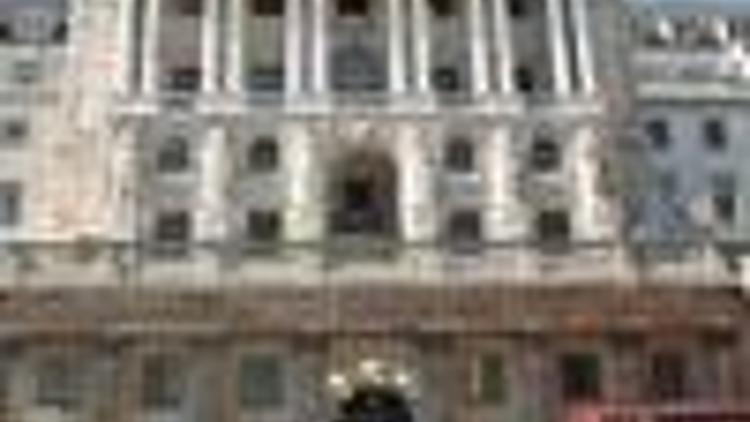BoE seeks more authority to create money
Güncelleme Tarihi:

The Bank of England (BoE) revealed Wednesday that it has sought approval from the government to create new money in a bid to kick start the economy as historically low interest rates leave the bank with limited scope for further rate cuts.
The minutes of the bank's monetary policy committee meeting in early February show a unanimous vote in favor of increasing the money supply, or so-called quantitative easing, amid fears that further rate cuts could hurt the profitability of banks.
If approved by the government, likely a formality, the bank could effectively turn on the printing press and start buying government bonds or other securities with the new cash within days.
The British central bank has lowered rates five times since October to the current 1 percent, the lowest level in its 315-year history.
Minutes of the Feb. 4-5 meeting reveal that eight of its nine members voted in favor of this month's half a percentage point, with one member instead plumping for a greater full percentage point cut that would have brought the rate to 0.5 percentage points.
But, along with other central banks around the world, that leaves the Bank of England running out of headroom to cut rates, the most conventional method of easing monetary policy amid little evidence that the economy's slide is being halted.
The bank said it could buy gilts - government bonds - which should boost private sector demand, and also corporate bonds and commercial paper which should help the economy by easing credit conditions.
"In the present environment, where particular credit markets were not functioning normally, it was appropriate to consider increasing the supply of central bank money by more unconventional types of asset purchases," the committee said. "These measures might help to change banks' behavior and boost the broad supply of money, which could provide a material stimulus."
Andrew Goodwin, the senior economic adviser to the Ernst & Young ITEM Club forecasting group, said was "crucial that the Bank be allowed to swiftly and boldly implement this policy."
The Treasury must respond to the monetary policy committee's request, an anticipated formality that could come within days. It will be up to the Treasury to
determine how much new money can be created.
The minutes suggested that the monetary policy might have agreed on a deeper rate cut this month if it were not for the potential negative impact on bank profit margins if rates fell further.
"At very low rates of interest, the stimulus that a reduction in bank rate could provide was likely to be much reduced," the minutes said. "Indeed, there might even be a point at which further cuts in bank rate could have an adverse impact on the economy, since banks and building societies maintained a spread between their deposit and lending rates to cover the costs of providing banking services and to make a return on capital."
Some economists said that indicated that rate cutting might have stalled, but many are still forecasting a 0.5 percent trim when the committee meets early next month.
Bank Governor Mervyn King has said that the bank might not need to go to zero, but other rate-setters have given hints that they will vote in favor of more rate cuts.
The Bank of England's forecasts, published last week, show the economy will contract at an annual 4 percent rate by the end of the first quarter and inflation will slow to 0.5 percent at the end of next year.
Official figures out Tuesday showed a smaller-than-expected drop in annualized inflation to 3 percent in January, from 3.1 percent in December, but many
economists still believe Britain is headed for destabilizing deflation.
Arch-dove David Blanchflower said rates should be lowered as far as possible "without delay," arguing that at least some of the larger cut would be passed on.
"Historically, errors had been made by cutting too late rather than too soon," the U.S.-based policy maker argued, according to the minutes.

